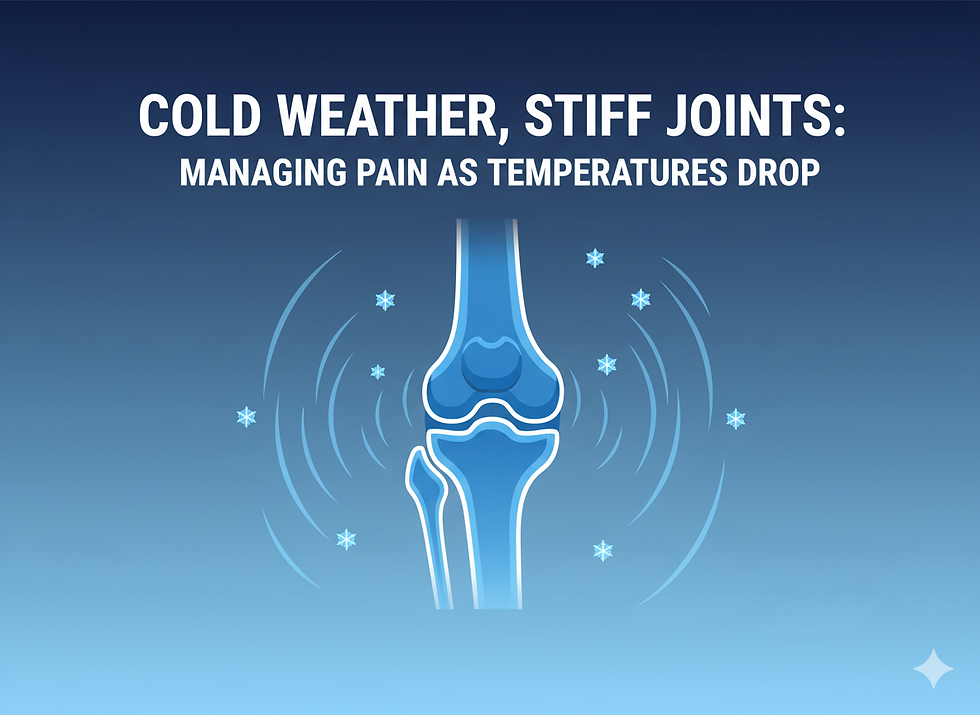Travel Tips from a Physio
- K-Town Physio

- Jan 12, 2024
- 2 min read
Updated: Jan 13, 2025
Now that the Christmas season is behind us and winter weather has (finally) arrived, many people are planning trips south in pursuit of warm sun, soft sand, and water that isn’t frozen!
Travel days are often long and tiring, where you haul luggage from one place to another and spend a lot of time sitting in vehicles and airplanes. This can result in you feeling “icky” when you finally reach your destination. Whether you’re a seasoned traveler or planning your first trip, you might find these tips helpful to ensure you arrive for your holiday feeling your best.
When packing for a trip, choose luggage that easily moves with you. Suitcases with wheels are much easier to lug around an airport than duffle bags. Keep the bag’s weight in check; lifting heavy bags in and out of vehicles and in and out of the overhead bins on airplanes can cause stress to the lower back and shoulders, especially if there are pre-existing concerns in those areas. Always ask for help if you need it!
Backpacks that feature a hip strap are worth the investment, especially if your trip features any form of trekking. The use of a hip strap allows for the hips to carry the majority of the backpack’s weight instead of the neck and shoulders, resulting in a much more comfortable experience. In addition, a cross-body purse or belt bag is a better option than a traditional purse as it allows for quick, easy access to important items (eg. passport) while passively hanging across your chest or at your waist.
Wearing loose-fitting comfortable clothing will help to keep you comfortable on long travel days. Dress in layers as temperature fluctuations are common, especially in airports and airplanes. Wear shoes that are comfortable and supportive, yet easy to remove (eg. running shoes). This comes in handy when going through airport security and when feet and ankles swell while up in the air. If you are someone who already experiences lower extremity swelling, investing in a pair of compression stockings might be helpful.
Even with the best of intentions, our bodies eventually cave into poor posture when sitting for a long time. The use of a travel neck pillow and a low back roll (placed just above the “belt line”) help to maintain the body’s natural spinal curves, reducing the discomfort that comes from poor posture. Rolling up a sweater or small blanket in a pinch can work great!
Completion of some simple exercises can help to improve blood flow, lessening aches and pains that often arise from prolonged sitting. These are a few that can be done even in cramped quarters:





Lastly, stay hydrated! Drinking lots of water will help you to feel more awake and alert throughout the day. Plus, more frequent trips to the bathroom equate to more frequent standing and walking breaks – which your body will thank you for!
Hope you found these tips helpful. Happy travels!
- Jennifer Young, Registered Physical Therapist



